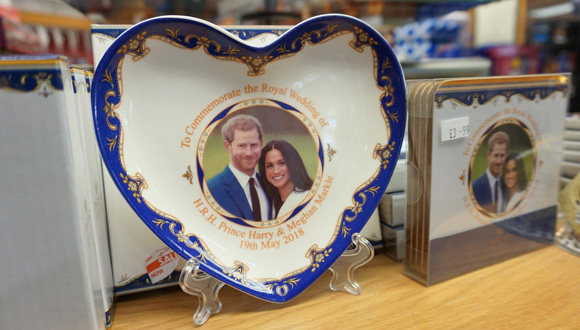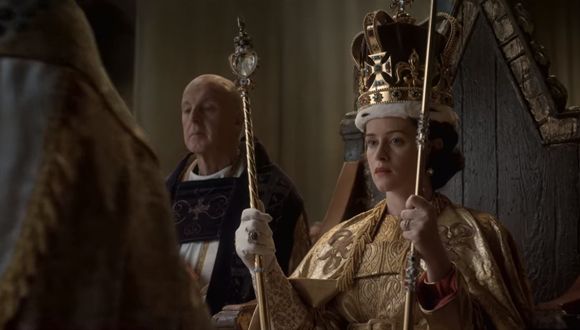What is the Future of The British Monarchy?
Is the British monarchy in the midst of an existential crisis? TAU researchers weigh in
Queen Elizabeth II’s 70-year reign has come to an end. A sad time for many, and most Brits do not remember a time when Queen Elizabeth II did not reside at Buckingham Palace. King Charles III (73), the Queen’s eldest son and heir, is undeniably less popular than his mother, and the dramatic transition follows recent commotions surrounding Harry and Meghan's highly publicized split from royal life, leaving some to question the future of the British monarchy. Is it time to give the monarchy a royal good-bye wave? We asked a few of our researchers to share some thoughts on the situation of the British monarchy today.
A Royal Mess?
For a cultural and historical perspective, we turned to Prof. Noam Reisner, who is an expert on Renaissance English literature and culture from TAU’s Department of English and American Studies in The Lester and Sally Entin Faculty of Humanities. Reisner doesn’t think the British monarchy is in the midst of any form of existential crisis. Reisner explains, “With the exception of a brief and unsuccessful 11-year stint with republican rule, which ended in 1660, England has had a remarkable continuity of royals. After the 11-year long, failed republican experiment, monarchy was quickly restored and the Brits never looked back.”
The challenge for Elizabeth's heirs going forward, he says, will be to reinterpret the royal house’s contract with the people, to keep it relevant. But its footing is strong: “For the Brits, the monarchy is not an invented tradition, but rather it is a part of the country’s DNA, and strongly ingrained in its culture. Its popularity remains high, as it symbolizes to the Brits what they are as a people: Constant, united and permanent.”
Royal Plates and Netflix
“Constant, united and permanent” would make an excellent tagline for the Royal House, wouldn’t it? Could the British Monarchy be regarded as a brand? We asked Prof. Shai Danziger from TAU’s Coller School of Management, a professor of marketing who is fascinated by how consumers process information and make decisions.
Prof. Shai Danziger suggests the success of the British royal family as a brand can be measured by comparing it to other long lasting brands that have been able to retain customer loyalty over decades: “I see a successful brand as having unique and clear identifying features and as having a set of strong, favorable and unique associations in the minds of its primary stakeholders (typically consumers). The more readily accessible the brand is in consumers’ mind, and the stronger, more favorable and unique associations it has, the more consumers will be willing to ‘invest’ resources such as time and money in the brand. Would a consumer be willing to pay more for a branded plate with the queen’s picture on it than one without? Or, in the context of media consumption, would consumers be willing to consume more media when they know it is about the royal family – such as reading tabloid articles about William and Kate and watching Netflix series like ‘The Crown’?” Judging by the many millions of households worldwide (the UK and the US being the strongest markets) that have watched the royal drama since it began in 2016, the royal brand is faring well.
What does the future look like, for the British monarchy, as a corporate brand? Danziger says, “only the future will tell whether younger consumers will still find the royal family relevant and interesting or a remnant of the past. In a world where values are rapidly changing and social media dictates popularity, it may be difficult for a very traditional establishment such as the royal family to keep up with the times."

Royal wedding souvenirs commemorating Harry and Meghan's royal wedding
The Glue that Binds Everything Together
We asked Dr. Alon Yakter from The School of Political Science, Government and International Affairs to pitch in with his thought on the continued relevancy and chances of the British monarchy. Yakter’s research and teaching interests include comparative political economy and social policy, identity politics, and electoral behavior during conflicts.
Yakter notes that in the Western world, monarchies remain popular, acting as a unifying and symbolic force. He does not believe that the monarchies as such are going anywhere anytime soon. They will, however, need to adapt to the daily life of this century: “Europe is becoming ethnically more heterogeneous, so the royals will need to be more inclusive, so that people of diverse cultures in their countries feel that the royals represent them too. That’s why the alleged concern within the British royal house about the skin color of Harry and Meghan’s then-yet-to-be-born son, Archie, was and remains a big deal.”
“Furthermore, strides will have to be made by the royals to become more ‘like ordinary people’ – they should for instance give a thought to their continued reliance on taxes. However, while our world may feel less stable at present time, this might even work to strengthen the monarchy, and democratic parliamentary monarchies in particular, as long as the royals make sure to stay out of politics and play their cards right.”
Yakter is unfazed by Duchess Meghan and Prince Harry’s marriage and the ensuing controversies, noting that this type of drama is nothing new: “Similar commotions have taken place in other monarchies and with other royals in the past – and the monarchies survived. The factory kept running. Because it is, indeed, an operation – and one which excels at PR. Prince Philip opened the Castle to the public. He wanted the royal family to engage more with the people, and insisted that the coronation of the Queen (in 1953) should be shown on TV. The royals reinvented themselves, as celebrities and symbols. And they have indeed gotten closer to the people. This is a new trend, one which followed the world wars and the understanding by West European monarchies in particular that their role had changed. What the royals have to offer the people, is to continue to be the glue that binds everything together.”






